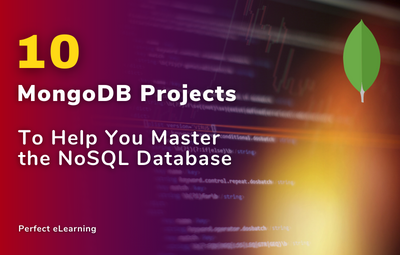

Embark on the QA automation journey with evolving testing trends! Discover the future of testing and seamless navigation through QA automation.
The software development landscape is marked by rapid innovation, shorter release cycles, and higher customer expectations. In this context, QA automation emerges as a game-changer. It involves the use of specialized tools and scripts to automate the testing process, from regression testing to load testing. This not only accelerates testing but also improves accuracy, reduces human error, and frees QA teams to focus on more creative aspects of testing.
1. The Shift towards QA Automation
QA automation is witnessing unprecedented growth due to its ability to save time and resources while maintaining product quality. Organizations across industries are recognizing the value of automating repetitive and time-consuming testing tasks. This shift allows testers to allocate their expertise to more strategic testing efforts, ultimately contributing to a more agile development process.
2. Benefits of QA Automation
The benefits of QA automation are multifaceted. It reduces the testing cycle, accelerates time-to-market, and enhances the software's overall quality. Automated tests can be run 24/7, enabling the early detection of defects and issues. This, in turn, results in cost savings, as identifying and resolving problems during the development phase is less expensive than post-production fixes.
3. Challenges in Implementing QA Automation
While QA automation offers numerous advantages, its implementation comes with challenges. Not all testing activities can be fully automated, and some areas still require manual intervention. Moreover, transitioning from manual testing to automation demands a significant shift in mindset, skillset, and infrastructure. Ensuring proper test coverage and maintaining test scripts can also be challenging.
4. AI and Machine Learning in QA
The integration of artificial intelligence (AI) and machine learning (ML) technologies is poised to reshape QA automation. AI-driven testing tools can automatically generate test scripts, predict defects, and optimize test execution. ML algorithms can analyze vast amounts of testing data, enabling teams to make data-driven decisions and enhance their testing strategies.
5. Continuous Testing in DevOps
The DevOps culture emphasizes collaboration between development and operations teams, and continuous testing is a cornerstone of this approach. With QA automation, continuous testing becomes more achievable, ensuring that each code change is thoroughly tested and validated. This enhances software stability and reduces the likelihood of bugs slipping through to production.
6. Mobile and Web App Testing
As mobile and web applications become increasingly prominent, QA automation for these platforms becomes crucial. Automated testing tools can simulate real user interactions, perform cross-device testing, and assess performance under various network conditions. This ensures that end-users have a seamless experience across different devices and browsers.
7. Security Testing in Automation
With cyber threats becoming more sophisticated, security testing is of paramount importance. QA automation can streamline security testing by conducting vulnerability assessments, penetration testing, and security compliance checks. This proactive approach helps identify and rectify security vulnerabilities before they can be exploited.
8. Performance Testing Evolution
Performance testing is evolving to meet the demands of modern applications. QA automation enables teams to simulate a large number of users, assess system scalability, and identify performance bottlenecks. By testing under different loads and conditions, developers can fine-tune their applications for optimal performance.
9. Test Data Management
Effective test data management is crucial for accurate and comprehensive testing. QA automation tools can generate, manage, and refresh test data, ensuring that tests are conducted with relevant and up-to-date information. This reduces the risk of false positives and incomplete test coverage.
10. The Role of QA Engineers in Automation
QA engineers are pivotal in the successful implementation of QA automation. While automation can handle repetitive tasks, QA engineers are responsible for designing test cases, maintaining test scripts, and analyzing test results. Their expertise ensures that automated tests are meaningful and aligned with the software's quality objectives.
11. Best Practices for Successful QA Automation
Successful QA automation requires a strategic approach. Teams should prioritize test cases for automation based on their frequency and criticality. Regular maintenance of test scripts and continuous integration with development processes are essential. Additionally, collaboration between QA and development teams fosters a culture of quality throughout the software lifecycle.
12. Future-Proofing Your QA Strategy
To future-proof their QA strategies, organizations must stay updated with emerging trends and technologies. The fusion of AI, ML, and automation will continue to redefine testing practices. By investing in upskilling, embracing new tools, and fostering innovation, businesses can navigate the ever-changing landscape of QA automation.
Conclusion
The future of testing is inseparable from QA automation. As technology advances and user expectations grow, QA automation will be a driving force in delivering high-quality software products efficiently and effectively. By understanding the trends outlined in this article and adapting their strategies, organizations can position themselves at the forefront of the QA revolution.
FAQs (Frequently Asked Questions)
Q1. What is QA automation?
A1: QA automation involves using specialized tools and scripts to automate testing processes, enhancing efficiency and accuracy in software development.
Q2. What are the benefits of QA automation?
A2: QA automation accelerates testing, improves accuracy, reduces costs, and allows testers to focus on strategic aspects of testing.
Q3. What challenges come with implementing QA automation?
A3: Implementing QA automation requires a mindset shift, skillset adaptation, and addressing areas that can't be fully automated.
Q4.How does AI impact QA automation?
A4: AI-driven testing tools can generate scripts, predict defects, and optimize testing, while machine learning aids in data-driven decision-making.
Q5. How does QA automation contribute to DevOps?
A5: QA automation supports continuous testing in DevOps, ensuring that code changes are thoroughly tested and enhancing software stability.
Perfect eLearning is a tech-enabled education platform that provides IT courses with 100% Internship and Placement support. Perfect eLearning provides both Online classes and Offline classes only in Faridabad.
It provides a wide range of courses in areas such as Artificial Intelligence, Cloud Computing, Data Science, Digital Marketing, Full Stack Web Development, Block Chain, Data Analytics, and Mobile Application Development. Perfect eLearning, with its cutting-edge technology and expert instructors from Adobe, Microsoft, PWC, Google, Amazon, Flipkart, Nestle and Infoedge is the perfect place to start your IT education.
Perfect eLearning provides the training and support you need to succeed in today's fast-paced and constantly evolving tech industry, whether you're just starting out or looking to expand your skill set.
There's something here for everyone. Perfect eLearning provides the best online courses as well as complete internship and placement assistance.
Keep Learning, Keep Growing.
If you are confused and need Guidance over choosing the right programming language or right career in the tech industry, you can schedule a free counseling session with Perfect eLearning experts.


